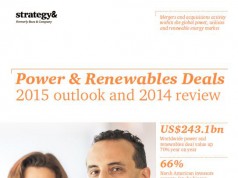 Bangkok, Thailand – The Independent Power Producers Association of India (IPPAI) – an independent energy think-tank – organised the 3rd Asia Energy Security Summit, a Track II Diplomacy initiative, at Bangkok, Thailand, on 28th February – 1st March 2013.
Bangkok, Thailand – The Independent Power Producers Association of India (IPPAI) – an independent energy think-tank – organised the 3rd Asia Energy Security Summit, a Track II Diplomacy initiative, at Bangkok, Thailand, on 28th February – 1st March 2013.
The focus of the summit was on Energy Security, Geopolitics of Energy and Security of Energy Infrastructure. ThinktoSustain.com was the Media Partner for the event.
 Over 50 delegates from 15 countries of South Asia, South East Asia, and Central Asia participated in the two-day summit where 30 very informative papers were presented and discussed. Energy professionals, diplomats, energy researchers, journalists, security analysts participated in the discussions.
Over 50 delegates from 15 countries of South Asia, South East Asia, and Central Asia participated in the two-day summit where 30 very informative papers were presented and discussed. Energy professionals, diplomats, energy researchers, journalists, security analysts participated in the discussions.
The present energy scenario, energy resources in the region, projected demand supply scenario, development options of primary energy resources with focus on shale gas, development of appropriate fuel mix, energy pricing, energy conservation and efficiency, present and future opportunities and challenges of cross-border energy trading, geo-politics and choke points, physical and technological security aspects, and related matters came up for discussions.
It was a general consensus that Asia will continue to dominate world energy business due to the insatiable thirst for energy required for dynamic economic growth in the region. However, it would require extensive co-operation amongst countries to develop the required governance, restructuring and reforms. Resolution of many bilateral issues between countries would be the key for fostering meaningful energy co-operation and sharing of resources.
The participants agreed that the region has extensive energy resources and that proper exploration and sharing of resources through carefully conceived implementation protocol of cross-border energy trading can ensure long-term sustainable energy security. There are security concerns but energy projects can act as peace media.
A significant portion of Asian population is living below poverty line and is very poor in terms of energy accessibility and per capita energy use as well. Supplying sustainable quality energy at affordable cost is the major challenge. The seminar agreed that peace and tranquility in the region will be established if people have access to energy, which will also create job opportunity and help in poverty alleviation.
 The seminar began with a keynote address by Pol. Maj. Gen. Lattasanya Piansomparn, the Advisor to Ministry of Energy, Thailand. He also released a knowledge report by IPPAI and Deloitte on “Dynamics of Emerging Trends of Energy Security in the Asian Context”. HE Mr. Anil Wadhwa, Ambassador Extraordinary & Plenipotentiary of India to Thailand, discussed about forging new alliances for energy security highlighting the role of governments and industries.
The seminar began with a keynote address by Pol. Maj. Gen. Lattasanya Piansomparn, the Advisor to Ministry of Energy, Thailand. He also released a knowledge report by IPPAI and Deloitte on “Dynamics of Emerging Trends of Energy Security in the Asian Context”. HE Mr. Anil Wadhwa, Ambassador Extraordinary & Plenipotentiary of India to Thailand, discussed about forging new alliances for energy security highlighting the role of governments and industries.
Mr. Kayhan Barzegar, Director, Institute of Middle East Strategic Studies, Iran, presented a paper on geo-politics of choke points as threat to energy security in Asia. Mr. G. Parthasarathy, Former High Commissioner of India to Pakistan, Australia and Cyprus, talked about India and emerging global development.
Mr. Khondkar Abdus Saleque, Technical Advisor to Ministry of Mines & Petroleum, Afghanistan, presented case studies about the cross-border TAPI (Turkmenistan-Afghanistan-Pakistan-India) Pipeline, the IPI (Iran-Pakistan-India) Pipeline, and the Myanmar- Bangladesh-India Pipeline. He also made a presentation on energy future of South Asia, deliberating on issues and opportunities.
Mr. I. S. Rao, Executive Director, Bharat Petroleum Corporation Ltd., India, discussed about acquisition of overseas energy assets as an option for access to reliable energy supply. Dr. Sameena Hameed, Assistant Professor, Jamia Milia Islamia, presented a paper on the role of foreign direct investment (FDI) in power, oil & coal sectors.
The advent of shale gas and its impact on the traditional reliance of Western countries on the Middle East for petroleum was presented by Mr. Dong Manyuan, Vice President & Senior Research Fellow, China Institute of International Studies (CIIS) China. Mr. Samrat Chauhan from Deloitte Touche Tohmatsu India Pvt. Ltd., vividly presented North America, South America and China’s stand-point on future shale gas market. Mr. Proshanto Banerjee, Former Chairman, GAIL, India spoke on the future potential for LNG terminals in the Indian subcontinent. Impact of LNG as energy fuel mix for the end user from a Malaysian perspective was presented by Mr. Charanjit Singh Gill, Senior General Manager, Planning Division, Tenaga Nasional Berhad, Malaysia.
Dr.Hooman Peimani, Head of Energy Division, NSU, Singapore, discussed the status of sovereignty, mining and extraction rights of rim nations of the South China Sea. Dr. Leila Alieva, Director, Center for National and International Studies (CNIS), Azerbaijan, talked about access to central Asian energy resources for Asian consumers. Dr. Vladimir Paramonov, Director of Project ‘Central Eurasia’, Uzbekistan, presented his thoughts on Russia’s capacity for oil & gas exports and its global impacts.
Mr. Hilal Raza, Director SAARC Energy Centre, Islamabad, Mr. Hari Ram Koirala, Secretary Ministry of Power, Nepal, Mr. Monowar Islam, Secretary Power, Bangladesh, and Mr. Harry Dhaul, Director General, IPPAI, conducted a very insightful panel discussion on the SAARC grid policy, regulatory, infrastructure, contractual issues in cross-border trade of electricity.
Mr. Ashok Das Gupta, President, IPPAI, made a presentation on the transnational trade of coal. The participants agreed that coal will continue to dominate the energy fuel mix despite its dirty emitting characteristics and felt the need for some sort of market-watch for regulating the coal price.















